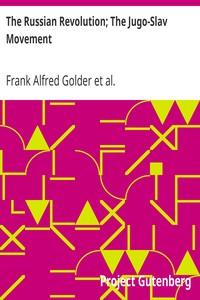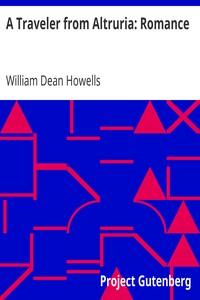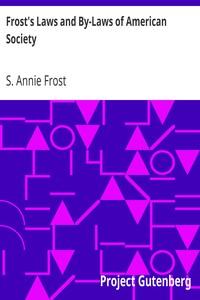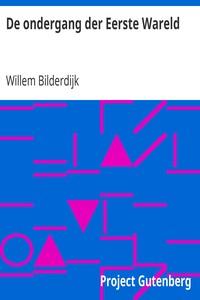Read this ebook for free! No credit card needed, absolutely nothing to pay.
Words: 26160 in 5 pages
This is an ebook sharing website. You can read the uploaded ebooks for free here. No credit cards needed, nothing to pay. If you want to own a digital copy of the ebook, or want to read offline with your favorite ebook-reader, then you can choose to buy and download the ebook.


: The Russian Revolution; The Jugo-Slav Movement by Golder Frank Alfred Harper Samuel N Samuel Northrup Kerner Robert Joseph Petrunkevitch Alexander - Soviet Union History Revolution 1917-1921; Soviet Union Politics and government 1917-1936; Yugoslavs
RUSSIAN REVOLUTION
THE JUGO-SLAV MOVEMENT
PREFACE Whatever may be its final outcome the Russian Revolution of 1917 bids fair to remain one of the great events of modern history. Its consequences are still immeasurable and today to many they appear as fraught with menace as with hope. They have within less than a year led a mighty empire to the brink of dissolution and no man can foretell where and how the process will end for worse or for better. The Russian Revolution saved the Central Powers at the moment when their prospect looked darkest, but on the other hand it facilitated the entrance of the United States into the war as one for liberty and democracy. Time has yet to show whether the loss or the gain has been the greater for the Allied cause and for mankind. It will be paid for at a heavy price but our hope cannot easily be shaken that sooner or later an event so full of promise for the misruled millions of the autocratic empire of the Tsar will mark a step forward, not backward, in the progress of the world. The whole story of the sudden out-break in Petrograd which in little more than a day swept away the fabric of imperial government will not soon be told, if ever. All real information on the subject is timely and valuable. We need such studies as those contained in the present volume, in order that we may understand what has happened, and why it has happened.
The rise of the modern Jugo-Slav movement offers us a very different picture. The subject and even the name are new to most people, the scale is much smaller; the events have been less dramatic. But the unconquerable resistance which a small disjointed nationality has offered throughout the ages to ill fortune, oppression, and to attempts to obliterate it entirely arouses our admiration. The movement too was intimately connected with the outbreak of the present world war which cannot be understood without taking it into account. It still represents only an ardent hope for the future but when the day of peace and justice comes no permanent allotment can be made of the lands east of the Adriatic that shall not give it at least some satisfaction.
ARCHIBALD CARY COOLIDGE.
MARCH 18, 1918. THE ROLE OF THE INTELLECTUALS IN THE LIBERATING MOVEMENT IN RUSSIA
There is, however, nothing extraordinary in the fact itself that intellectuals are the real leaders of all Russian parties. Better education and wider knowledge of the affairs of the world have always appealed to the dark masses who realize only dimly their own desires and grasp at any concrete formulation of reforms which contains a tangible promise or seems to express those desires. At the same time they often put their own meaning into the words of their leaders, which is true even of factory workers in the larger cities. As for the peasants, representing about 90 per cent of the entire population, they are still very poorly educated, questions of national import remain outside their horizon, and even their language is not the language of the educated Russian, inasmuch as it lacks the rich vocabulary of modern life and is devoid of the very conceptions to which this vast treasury of words applies. Their mind, great as it is in its potentialities, still moves in the furrows of familiar ideas abhorring things too much at variance with inherited traditions or actual experience. Yet in the turmoil of revolutionary activity the peasants are going to have their say and may become the decisive factor, because they are voters and are casting their votes for those leaders whose words they believe to contain the greatest promise and the least menace of a general disruption of their accustomed mode of life.
We are thus brought back, for the present at least, to the necessity of recognizing that even the state of anarchy under which Russia is laboring, even the rule of the renowned proletariat so much trumpeted about by Lenine and Trotzky, is in reality the work of intellectuals, an answer of the masses to the call of their leaders, a groping for principles beyond their perception.
It suffices a very casual examination of the programs and resolutions of various political parties to see the truth of this statement. They are expressive of the opinions of the leaders, not of the masses; are couched in the language of the educated Russian, not in that of the workman or peasant and, except for the concluding slogans like "Peace, Bread, and Land," are alien to the very spirit of the masses. In this respect all parties are confronted with the same difficulty since all strive to get the support of the masses, yet have to express principles evolved through careful and extensive study of national, political, and economic problems, strange to the uneducated mind. For the same reason the methods of surmounting the difficulty differ in many respects and are characteristic of each party.
The Conservative Intellectuals of Russia early realized the necessity of meeting the peasant on his own ground and the advantage of appealing to him in his own language. The idea of a benevolent ruler, an all-suffering motherland, and an all-unifying church exercised a powerful appeal upon the imagination, for a long time superseding and forcing into the background the growing, elemental, and unfulfilled longing for more land. The ideology of a perfect monarchy is so simple and its shortcomings so easily attributable to dishonesty of officials, that it answered the peasant's thoughts as long as he was not able to see the folly of distinguishing between the system and its realization, but separated in his mind the image of his loving monarch from the cruel reality of everyday life as he still distinguishes between the faith and the priest. The great mistake of all conservatives is that they seek to bring about a state of perfect justice by improving only the quality of the ruling body without changing the conditions of life of the ruled mass. Yet even so the Conservatives had quite a following among the peasants up to the time of the revolution of 1917 and in a way may still have a future before them.
The Octoberists find no support in the masses and do not make any serious attempt to gain it. They frankly acknowledged themselves as the party of industry and trade, having no wider interests at heart than the maintenance of order and law throughout the country. Their leaders were forced into a revolutionary attitude only at the time when there was danger of a universal collapse of Russia if the tsar's government persisted, and they may be forced to join in a counter-revolution, if their interests are again endangered. Their ideology is that of a capitalistic class and their power depends entirely on the future development of industry and trade in Russia. For the present they are nowhere. Unable to find a new basis for their activity in place of class interest, they lack unity of purpose and are deserted by their own former supporters among their employees. Trade and industry are disorganized and the party may never be resurrected.
The Constitutional Democrats are in this respect better off. They find their support chiefly among more or less educated people of various pursuits: lawyers, bankers, brokers, journalists, teachers, artists, scientists, etc. Their program embraces the interests of all classes and demands political, judicial, economic, industrial and agrarian legislation of a very radical and extensive kind. Their horizon of vision includes the sufferings and aspirations of the often incongruous elements of the vast whole, but their ideology is still based on the long outworn idealistic capitalism and for this reason alone does not and cannot appeal to not-owning classes. Their agrarian program is in this respect the most striking example. It is worked out in great detail and is aimed at a betterment of the condition of peasants without deep injury to the present landowners. It recognizes the right of the peasant to more land, it provides for future state ownership of land to prevent it from falling into wrong hands, but does not condemn the principle of landownership, nor the injustice of present ownership, and for that reason elaborates a method of compensation for compulsorily alienated land through universal taxation.
Free books android app tbrJar TBR JAR Read Free books online gutenberg
More posts by @FreeBooks


: A Traveler from Altruria: Romance by Howells William Dean - Utopian fiction; United States Social conditions 1865-1918 Fiction







